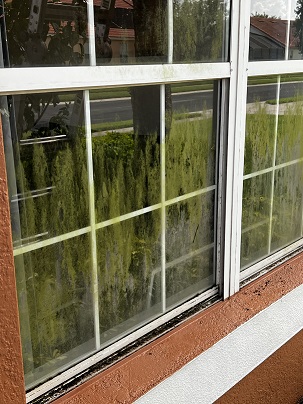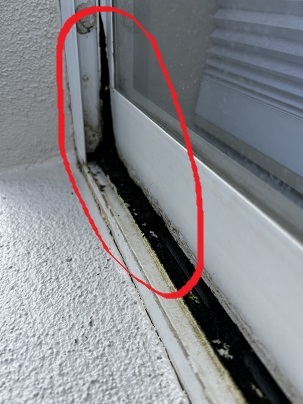How Often Should You Clean Windows?
Here is a guide on how often you should clean your windows, and the factors that can affect it. And let’s start with these factors first, before we discuss the frequency of cleaning windows.
Factors Determining How Often To Clean Windows
In the world of home maintenance, the often-overlooked chore of window cleaning plays a pivotal role in maintaining the aesthetic appeal and functionality of any space. Clean windows not only enhance the overall appearance of your home or office but also contribute to a healthier indoor environment. In this post, we’ll explore the various factors that can influence the frequency of window cleaning, shedding light on the importance of ensuring often clean windows for a brighter and more inviting living or working space.
Usage and Traffic: The amount of activity around your windows can impact how often you need to clean them. Commercial spaces with high foot traffic, for example, may accumulate fingerprints and smudges more rapidly than a residential property. Understanding the usage patterns of the space around your windows can help you tailor your cleaning schedule accordingly. We here at WindowCleans, usually recommend small businesses to join the bi-weekly schedule.

Surrounding Foliage: The presence of trees, bushes, or flowering plants near your windows can impact the frequency of cleaning. Pollen, sap, and other natural substances can accumulate on window surfaces, diminishing the view and natural light. If your property is surrounded by greenery, it may be necessary to clean your windows more often to keep them free from organic debris. A question we receive often is, why do these windows turn green and those on the other side don’t? Especially trees like oak trees, or trees and shrubbery producing pollen, will increase the chance of algae and green to settle on your windows.

Windows And Your Surroundings
Location and Environmental Factors: The geographical location of your property plays a significant role in determining how often your windows need cleaning. Homes or businesses situated in urban areas may accumulate dirt, pollution, and grime more quickly. Additionally, environmental factors such as proximity to industrial zones, construction sites, or areas with heavy traffic contribute to the accelerated buildup of pollutants on windows, necessitating more frequent cleaning. For us here in Florida, thunderstorms and heavy winds, construction zones all around… Surely no need to draw a picture. It will determine the frequency of window cleaning on the residential side of things.
Weather Conditions: The weather can directly impact the cleanliness of your windows. Rain, for instance, might seem like a natural cleaner, but it can leave behind water spots and streaks, especially if the rainwater is hard or contains minerals. On the other hand, windy conditions can blow dust, debris, and pollen onto your windows. This requires more regular cleaning to maintain clarity and transparency. When you say rain, you think water. And the wind may be an even bigger spoiler of clean windows, let’s not forget our sprinklers.
Florida has hard water, not much we can do about that. Sprinklers are the biggest culprit when it comes to mineral deposits sticking to windows. You have tried cleaning your shower door in the past, correct? Not an easy task. Now add a hot baking source like the sun in the mix. Plus years of never cleaning that window. You will need a professional window cleaner to resolve the stains on the window.
What Can I Do?
Maintenance Practices: Regular maintenance practices can extend the time between professional window cleanings. Wiping down window sills, frames, and removing visible dirt can help prevent the accumulation of grime. In addition, this is Florida, we all know that mold and humidity go hand in hand, unfortunately. Window frames are constructed together, usually with some sort of silicone. Compare the bathtub grout, or shower sealings, with your window sealings, and you know mold will affect your window frame. If there is ANYthing you can do, then opening your windows and wiping the windowsills is ‘IT’. And make this a 3-month routine.

So How Often Clean Windows?
In Florida, where the climate is characterized by high temperatures, frequent rain, and abundant sunshine, maintaining clean windows is not only essential for aesthetic reasons but also for practical and safety purposes. The frequency with which you should clean your windows in Florida depends on various factors, including the specific location, and the surrounding environment. In general, it is advisable to clean windows at least twice a year to ensure they remain free from dirt, and other environmental pollutants.
At WindowCleans we offer 3 options, and we like to explain the options as follows:
Every 3 months: you enjoy clean windows. Professionally cleaned windows, generally speaking, will stay clean for up to 3 months here in Florida. You don’t have to worry about green sheen on your windows, no grime and mold can build up. Aesthetics is the main factor in this option.
Every 6 months: Cleaning frame and windows every 6 months is the safety option. Green algae will not attach to the window, and mold is not given a chance to grow and enter the property.
One-Time Window Cleaning: With no time frame given, windows are cleaned upon request. Notice how we do not refer to this option as a ‘once a year’ option? Depending on environmental factors as discussed above, the safety cut-off period is 6 months. For Florida that is. Mold can/will be present in some windowsills, and some windows may show a green sheen after 6 months or more.
In a Nutshell
The question of how often clean windows is not a preference issue. In addition to regular cleaning, it is essential to inspect windows for any signs of damage or wear, especially in regions prone to tropical storms and hurricanes. Timely maintenance and cleaning not only enhance the aesthetic appeal of your property but also contribute to the longevity and functionality of your windows, ensuring they can withstand the challenges posed by Florida’s unique climate.
